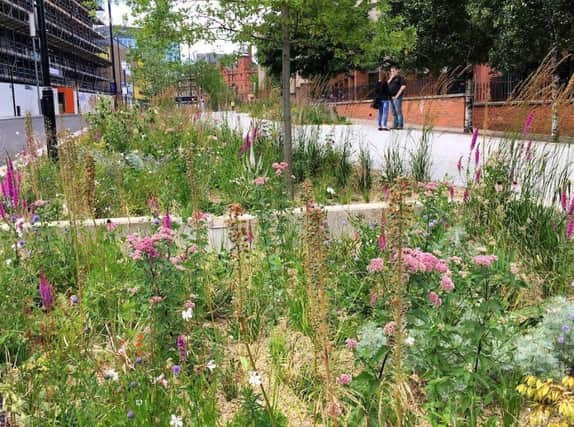Environment: Loss of biodiversity is as existential a threat to us all as climate change


Biodiversity is all the variety of life on Earth and includes all animals, fish, plants, fungi and also human beings. Loss of biodiversity is as existential a threat to us human beings as climate change. This COP is very important because it will lay out the next 10 years of UN biodiversity targets. Increasingly, we recognise that we are facing destruction of the Natural World and a biodiversity crisis. Ecosystems around the World are collapsing.
Drivers of the World destruction of the Natural World and biodiversity loss are: the Climate Crisis, destruction of habitats, Pollution plastic, the use of pesticides, Invasive species and Extraction of natural resources such as taking ground water.
Advertisement
Hide AdAdvertisement
Hide AdThe impact on biodiversity is happening in ways which we don’t even fully understand. This COP 15 is well overdue, having been delayed by 2 years because of Covid. The aim of the meeting is to stop the destruction of Nature on our Planet. The stakes for the Summit - could hardly be higher. UN Secretary‑General António Guterres’ message to the Leaders was as follows; “We are losing our suicidal war against nature. Our two-century-long experiment with burning fossil fuels, destroying forests, wilderness and oceans and degrading the land has caused a biosphere catastrophe.
Humanity’s reckless interference with nature will leave a permanent record — just as today’s scientists study the traces of previous extinctions. We are well into the Anthropocene extinction. The rate of species loss is tens to hundreds of times higher than the average of the past 10 million years — and accelerating. Over a million species of plants, mammals, birds, reptiles, amphibians, fish and invertebrates are at risk — many within decades”.
For example, the reduction in the number of insects is thought to be a 75% in the past 20 years. And yet we are so dependent on the insect world, as an essential part of our Global Ecosystem, for all sorts of processes, from pollination of crops, to recycling dead material. Without them, everything will collapse.
Guterres makes a call for action in 5 areas.
Firstly, recognise the importance of indigenous people as being the best stewards of the land and its biodiversity, and have the right for them to do so. They show us how people and land can live well together. However, an approach called “fortress conservation” – the strict separation of humans and nature, is often enforced by armed rangers, in the name of ‘Conservation’. Human rights violations and even killings are not uncommon in such protected areas, hence the importance of protecting the indigenous people.
Advertisement
Hide AdAdvertisement
Hide AdSecondly, tackle the drivers of biodiversity loss, especially unsustainable consumption and production. (To put it bluntly, we must make less stuff, the stuff must last longer, and we must buy less stuff, because our overconsumption is killing the planet).
Third, it must work national and global accounting systems must reflect the true cost of economic activities, including their impact on nature and our climate. So, for example, stop subsidising fuel for bottom trawling fishing, that is destroying marine life.
Fourth, developing countries need support, including significant financial resources and technology transfer.
And fifth, perverse subsidies must end. These funds should be redirected into repairing the damage that has been done, and moving subsidies to farmers away from destructive practices to support sustainable farming practices.
Advertisement
Hide AdAdvertisement
Hide AdThe big headline target is ’30 by 30’. This refers to efforts by the global community to conserve 30% of terrestrial and marine habitat by 2030.
Other big targets include eliminating plastic pollution and halving the rate of introduction of invasive species.
Unfortunately the summit clashes with the start of the Qatar World Cup football games. This will take centre stage on our screens and takes the pressure off world leaders from getting involved in COP 15.
Other pressures on reaching a good agreement include the war in Ukraine and the cost of living crisis. This has certainly happened at the climate crisis COP 27 held in Egypt in November. But most scientists would argue that if we have any chance of protecting the future, we absolutely have to act now.
Advertisement
Hide AdAdvertisement
Hide AdThere are serious concerns as to whether our own UK Government is threatening Nature by tearing up some of the most fundamental laws we’ve got. New planning laws and ‘investment zones’ announced in September represent a ‘free-for-all’ on nature by weakening the laws previously in place to protect it from bulldozers. The Sheffield Wildlife Trust say that wildlife is not being protected and there is a relaxation on pollution laws, resulting in more sewage in our rivers and streams.
Additionally, the Government is reviewing the new system that has been developed to reward farmers to restore the Environment.
If you have a view about this, please contact your MP.
And if you have a garden, consider rewilding it, and stopping using pesticides.